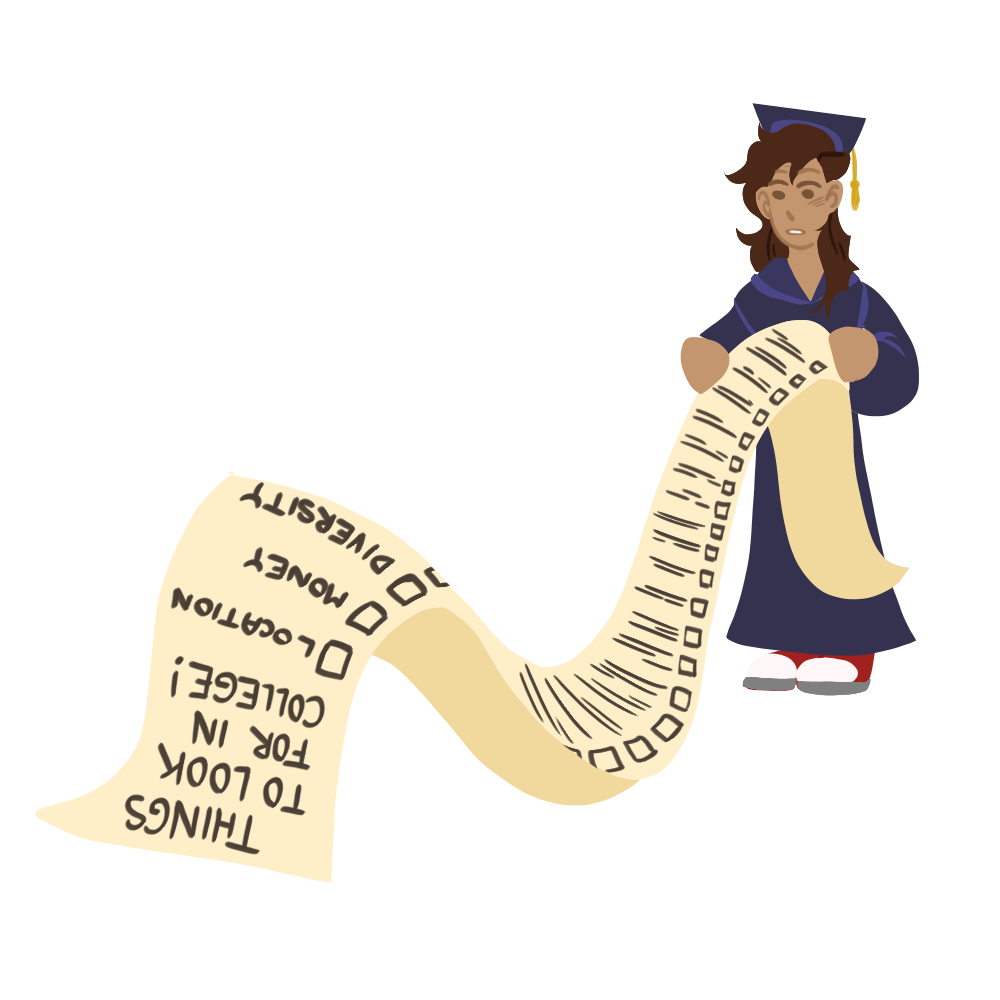Are you thinking about attending college? When considering the future, earning a college degree seems to be a lifetime achievement. According to the averages calculated by the U.S. Bureau of Labor Statistics (BLS)[1], individuals with higher education (professional or doctorate degree) earn around 64% more per week than those with a high school diploma. This might be a reason why the overall college enrollment rate[2] has increased to 41% in recent years. That being said, many students find completing their studies in the enrolled colleges challenging, leading to higher dropout rates every year. Some of the main reasons include the time commitment, the cost of attendance, and several unexpected emergencies.
Choosing the right college that fits your needs academically, socially, and financially may often feel daunting. Degree Query shares that advancing your qualifications, acquiring specialty certifications, or participating in workshops and seminars can substantially improve your competencies. To help you with the process, here are a few mistakes you need to avoid along the way.
Following The Prestige
Many students tend to choose their college solely for its reputation; however, it is better to look for the values than just the name. Highly-ranked colleges in the country can provide better opportunities. Still, one must understand that lesser-known institutions may offer the same options. Prestigious colleges are not for everyone; some need smaller classes for better learning.
Being a Follower
Most people choose a college near their home or where their friends are interested. It may be comfortable to attend a college where you can live the same life as you did before with friends and family. However, it doesn’t mean you will be satisfied with that college. Instead of focusing on short-term fulfillment, one should focus on long-term academics. College is a place where you grow as a person and discover your passions. Hence, you need to set your feelings aside and evaluate the campus, the quality of academics, and financial aid to get the best out of the college experience.
Not Visiting
Nowadays, institutions spend more money to reach prospective students via advertising. Considering relying solely on college website or adverts is not recommended. You may schedule an appointment for a college tour and ask your campus tour guide to answer all your
queries. It is advisable to collect the contact details of the tour guide for future inquiries. As you visit the campuses, the advice from current college students can also be kept close to hand, which can help you make the right decision.
Focusing On a Single Aspect
Everyone has different priorities about their college, such as major, location, social life, extracurricular activities, etc. Unfortunately, some students tend to focus only on their first priority and ignore all others on their list. Before you embark on your college list, you need to figure out all the facilities you want in a college and ensure you find an institution that meets all your requirements. For example, suppose you are now interested in a particular major. In that case, there are chances that it can change in the future. Thus, finding a college that offers majors in all disciplines you enjoy is critical. Priorities can change sometimes; ensure that all the priorities are met while choosing a college.

Ruling Out Expensive Colleges
Fees are an essential consideration when it comes to selecting a college. Many students believe in the price listed on the college website and exclude that college from their list. However, it is not the best idea to rule out a college because your budget does not meet the required sticker amount. It is better to be realistic, but not until you explore all available financial aids, which can make a private institution cheaper than the public one.
Only a tiny fraction of students pay the sticker price for their studies. The National Center for Education Statistics[3] estimates that over 80% of full-time, first-time, degree-seeking undergraduates receive financial aid through grants, scholarships, work-study programs, or loans.
Being Hasty
Searching for a college will be very time-consuming and tedious when done correctly. Rushing through the application process at the last minute may lead to significant mistakes, such as missing deadlines or incomplete applications. Incomplete or incorrect applications can often delay acceptance and reject financial aid. Take your time and start the research as early as possible to find the college that fits you best.
Remember, a college is a place where you discover yourself and your passions. Hence, finding a college that is accurate for your needs is critical. Therefore, when choosing a college, try to avoid the common mistakes we talked about in this article.
Note: For updated statistics, consider reviewing updated references No. 4 and No. 5.
Originally published in the Zealousness e-magazine in 2018. Revised in 2022. Read more education related articles on Zealousness blog Education – iN Education Inc. (ineducationonline.org)
References
- “Unemployment rates and earnings by educational attainment.” Accessed October 10, 2018. Last update September 2022. https://www.bls.gov/emp/chart-unemployment-earnings-education.htm.
- “The Condition of Education 2018 – National Center for Education ….” Accessed October 10, 2018. The Condition of Education 2018
- [1]“Full-time, first-time degree/certificate-seeking undergraduate students ….” Accessed October 11, 2018. https://nces.ed.gov/programs/digest/d15/tables/dt15_331.20.asp.
- “A Publication of the National Center for Education Statistics at IES.” n.d. https://files.eric.ed.gov/fulltext/ED619870.pdf.
- “Digest of Education Statistics, 2021.” n.d. Nces.ed.gov. Accessed March 11, 2023. https://nces.ed.gov/programs/digest/d21/.























